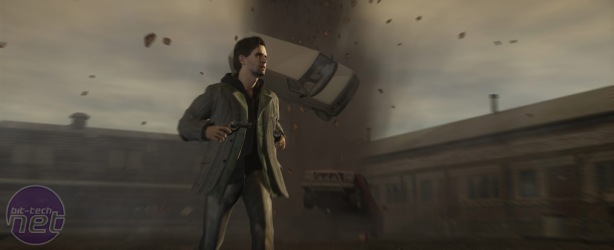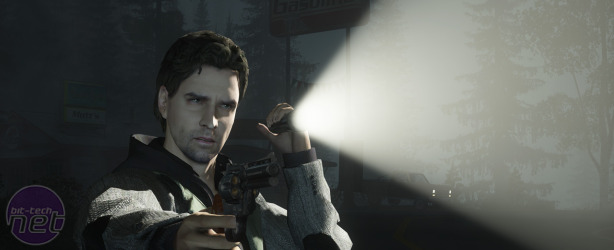
Alan Wake Conclusions
The episodic approach and the intermittent voiceover provided by Alan himself go a long way to giving a sense of immersion which, along with the strong and focused storyline, helps make the game engrossing to play. The negative side of this is that the game can sometimes feel excessively linear and we occasionally felt like we were simply shepherding Alan from cutscene to cutscene merely to get the plot line pushed on another notch.The story is compelling though, and the game doesn’t feel the need to spell out the intricacies of the plot, which is a nice change from the cater-to-the-lowest-common-denominator approach of some other games we could name.
Having said that, the dialogue in Alan Wake can sometimes contain more ham than a butchers window - this overly melodramatic style is something of a signature style for the writer, who also wrote Max Payne. There are some lighter moments, mostly provided by Barry - Alan’s loud New York agent - who provides some amusing self referential lines that poke fun at the game and the thriller genre as a whole, but Alan Wake is still a game that tries a bit too hard.
Comparisons with Max Payne inevitably arose as we played through Alan Wake and, like its predecessor, Alan Wake is effortlessly stylish at times. The action frequently slows down and pans out for slow-mo shots when you manage a successful melee dodge, and Remedy does a good job of giving the Alan's adventure a theatrical, almost cinematic feel.
The pace of the combat is great and it’s a challenge to balance the flashlight with more conventional weaponry, especially when you have a number of enemies on you at once. Things are given an even more frantic edge due to the fact that Alan is the slowest thing in his weird little world, meaning turning your back on a fight is rarely an option. He does get a number of weapons to balance things up though, with flash bangs, flares and better torches being introduced as things progress. The intelligent decision to keep the inventory system streamlined and minimal in a Left 4 Dead kind of way also keeps the action quick and dirty, and we were happy not to have to pause and go to an inventory screen in the middle of combat.
Unfortunately, as the game progresses things don’t ramp up in difficulty as much as they should. In the early stages of the game the anxiety and sense of dread we found so enthralling were enhanced by the fact that we were scratching around for ammo and batteries, often getting close to running out before we found the next ammo cache. However, in the later episodes we were wandering around like Rambo, with buckets of ammo and enough batteries to light up Birmingham, which took some of the tension out of the game.

Essentially though, Alan Wake is an enjoyable game and the level of polish in terms of visuals, presentation and story are excellent. It may not be for everybody, as some players are likely to find the linearity of the experience frustrating, but we found the strength and pace of the story compelling. Arguably the game needs to be linear in nature as distractions such as side quests would just break up the main plot, which would be detrimental. We’re also concerned that there is little replay value, which is a worry given that you’re only likely to get 10 or 12 hours gaming before being pushed on to the DLC.
Still, it's good while it lasts, even if it's hardly the revolution Remedy fans have been praying for for the last five years.
Score Guide

MSI MPG Velox 100R Chassis Review
October 14 2021 | 15:04











Want to comment? Please log in.